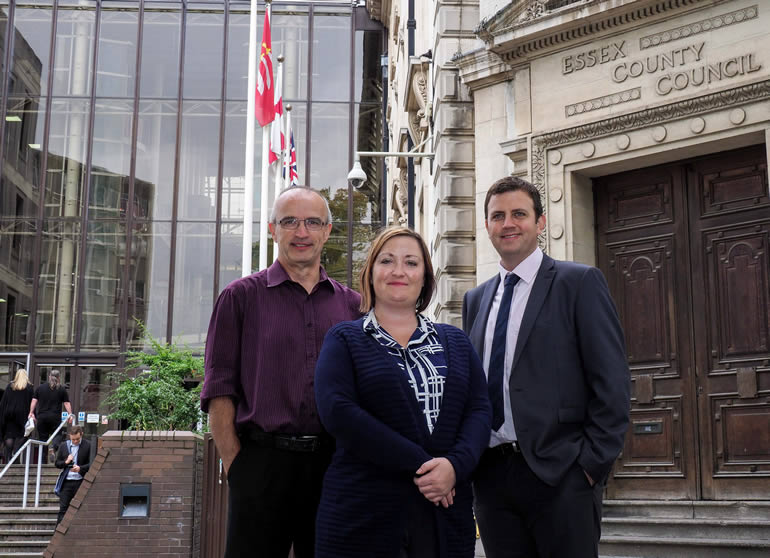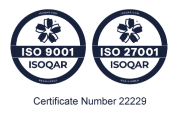Painless PCNs and the Elimination of Stress
“For the public the process of appealing PCNs can be very frustrating. That frustration was mirrored in our staff who were overloaded with batches of similar appeals which all required sorting and individual responses. Drivers were left waiting for responses to appeals – effectively throwing fuel on the fire of their frustration.” – Andy Champ, Network Operations Manager for highways at Essex County Council
Receiving a PCN can be enough to ruin anyone’s day. But council staff can find this experience just as difficult – especially when processing repetitive appeals from aggravated drivers, each of which requires a personal response. And of course this is a highly contentious area: with emotions running high drivers can sometimes perceive that authority staff are being unhelpful.
For Essex County Council it became essential to find a balance between adhering to legislation, managing workload and providing drivers with better information to minimise frustration and confrontation – and to improve the mental wellbeing of all involved.
PCN challenges
While it is clear that PCNs won’t be disappearing any time soon, is it possible to reduce the amount of administrative work that accompanies them, and effectively worsens an already highly emotive situation.
For many councils, when appeals are submitted it can take weeks before the driver receives a response – which may be brief and offer no interactivity, increasing frustration towards the council. However, while the driver may feel anger at the seemingly uncaring faceless council machine, in reality the associated paperwork can be difficult to manage, and authority staff are hamstrung by legislation restricting communication relating to appeals processes.
The high stress levels associated with this emotional process are a concern – especially in terms of the impact on mental wellbeing. This is true both for drivers, but also of course for authority staff, who can find themselves in the firing line of a frustrated public.
Andy Champ, Network Operations Manager for Highways, summarises the issue: “Legislation requires all correspondence between us and the public to be in written form when dealing with PCN appeals. Sometimes this can give the driver the impression that our staff are unwilling to help by having a quick conversation either over the phone or face-to-face – when in fact they are merely abiding by the law.”
The right time for change
Having attempted to juggle the many issues relating to PCN appeals for many years, Andy and his team decided it was time for a change. Might there be an easier way to manage each case quickly, with the transparency which drivers expect, and the personalised information they require?
Noting that the majority of notices and appeals were in similar in nature, Andy spoke with Essex’s technology partner Imperial and was able to identify a way to improve this process: “We saw the potential for a solution that would break communication barriers between our team and the public, and create a much more transparent and faster paced appeals procedure,” he said.
Working with Imperial’s development team, Essex County Council was able to implement the ChallengeSmarti solution: an online portal from which all PCN appeals are filed electronically. The system is able to process all information relating to each individual case and can instantly advise whether an appeal is likely to be successful.
The portal informs drivers by providing valid reasons as to why appeals may be refused, supported by video and photographic evidence from the time of the offence. It provides assurance for drivers where fines are valid, and directs frustration away from council staff.
Efficiency savings driving the future
Andy and the team have enjoyed significant improvements as a result: staff workload is more manageable, and the portal has made the entire process less confrontational for staff and members of the public.
“Not only have we saved valuable hours for our highways staff who have other jobs to do; the number of PCN appeals submitted has reduced by 30%. This is down to the instant indication of success that ChallengeSmarti provides. It is also so much better for drivers as we have removed the element of doubt: when a driver is advised they are unlikely to win an appeal, they can see the evidence for themselves and can even pay there and then through the portal.
“In this sector you are not realistically going to receive positive feedback from drivers; however the evidence of ChallengeSmarti is in efficiency savings of staff. They are no longer dealing with a confrontational, stressful – and actually often quite boring – process. The council has a strong focus on mental wellbeing – of both staff and the public – and this tool supports this by taking the stress away for all involved.”
Conclusion
As the example of Andy Champ and the team at Essex County Council reveals, technology has the potential to improve the processes surrounding PCNs, making a previously difficult process simpler and clearer for all involved.
Meanwhile, the reduction in workload has helped with resourcing: “With new sites coming online shortly we were looking at a recruitment drive, but this solution has meant we didn’t need to,” says Andy. “Due to the time savings we have been able to absorb the additional workload within the existing team.”
But perhaps the most significant impact is to be felt in terms of mental wellbeing. By removing the stress, frustration and conflict surrounding this most emotional of processes, Andy and his team have delivered a solution which genuinely benefits the public and council staff in a very real – and vitally important – way.
Essex County Council:
- Serves a population of over 1.3 million
- One of the largest local authorities in England
- Has a total of 12 cameras enforcing 9 sites
Andy Champ (left) alongside Hayley Street and Toby Bliss
Company Registration Number: 02023383 ¦ Registered Office Address: Century House, 1 The Lakes, Northampton, NN4 7HD





